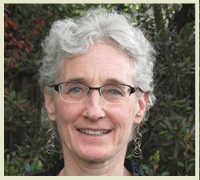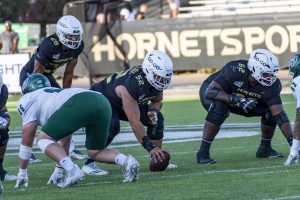Director of higher education institution helped shape Sacramento State policy

April 30, 2014
Nancy Shulock, director of the Sacramento State’s Institute For Higher Education Leadership and Policy, is retiring in September after a 30-year career in administration and higher education policy.
The IHELP institute has produced multiple reports that highlight the need for policy change to help students succeed in California Community Colleges, by collecting data on student transfer and completion rates, and analyzing higher education policy.
She has also participated in making the campus administration more efficient by creating a plan to help match the goals of the university with the budget.
“What we did and what I worked on for many years was to build up and coordinate with the planning council to develop a strategic plan, and then we would use that plan to set priorities for the campus and the budget would be used to help the university accomplish its goals and priorities,” Shulock said.
Shulock received her masters degree in public policy from the UC Berkeley and her doctorate in political science from UC Davis.
As the associate vice president for Academic Affairs, Shulock was responsible for the yearly budget and worked with the provost to advance the university’s academic programs. She also worked in administration with Mike Lee, current vice president and chief financial officer.
“It was a very complicated job because her work required her to work with all the deans, and because Academic Affairs is the largest division on this campus with the largest budget,” Lee said. “It was a very heavy responsibility, but I remember her being very fair and very thorough in her analysis.”
A big transitional change Shulock experienced was the split of one college into three in 1996, and the challenge of allocating funds for each. The College of Arts and Science split into the three current colleges including the College of Arts and Letters, the College of Natural Sciences and Mathematics and the College of Social Sciences and Interdisciplinary Studies.
“When I was in Academic Affairs, it was really rewarding because it was an interesting maturing period in this university,” Shulock said. “But I started to really yearn for public policy work because that was my field.”
Emeritus Donald Gerth, who served as president of Sac State from 1984 to 2003, created the IHELP institute and placed Shulock as executive director in 2001, where she remained for the second portion of her Sac State career.
“Gerth had this idea that there was a void in California,” Shulock said. “There was no entity that was studying higher education policy for the state.”
The IHELP institute received start up funds from the chancellor’s office for the first two years, and Shulock has been responsible for fundraising to sustain the center.
“We’ve been really successful,” Shulock said. “The university has a number of centers and institutes, but we are considered among the most successful, not only in our ability to raise money, but for the work and the product that we put out.”
Lee said the caliber of her analysis is apparent by its influence on higher education policy making in the state.
“We are lucky to have that center housed on this campus,” Lee said. “I personally believe it is a tremendous asset to the university. Legislatures and state government officials have cited her research to make important decisions about higher education in this state.”
Shulock said she is excited for retirement and is looking forward to spending two weeks in Peru, but her love for policy analysis and research has kept her from leaving Sac State.
“For quite a while it was a barrier to my deciding to retire because I love my job,” Shulock said. “I get to participate in national projects. I get to travel and meet smart, interesting people who are all doing work like this, and feel like ultimately you are making a difference.”
























































































































Ilian Cervantes-Branum • Nov 15, 2017 at 7:17 pm
This is another story I wrote for the News Section of the State Hornet. I still have The G Drive documents complete with editor comments and can search for the audio interview recording to prove it is me. I see other people on the staff have their bylines, please contact me to correct this disservice.